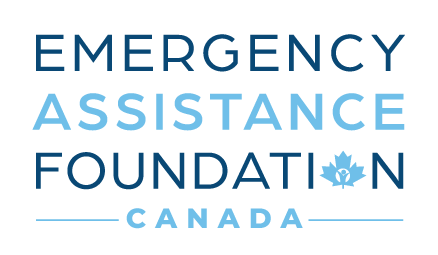
IRS Payroll Deduction Rule: What You Need to Know & How to Ensure Compliance
October 15, 2019
Optimize Year-End Giving for Employee Relief Fund Donations
December 10, 2019With decades of experience auditing, advising and administering employee relief funds, Doug Stockham, President of the Emergency Assistance Foundation (EAF), is frequently asked by business leaders across the nation what his top piece of advice is for starting a relief fund. His experience auditing and interviewing numerous relief funds administered by a corporate foundation have shown that most have costs that are exceptionally higher than they perceived and are either out of compliance or pushing the compliance envelope. His answer, quite simply, is most corporations should avoid administering their own fund. The benefits of securing a third-party administrator are just too great to surpass.
Following are Doug’s top five benefits of having a third-party administrator.
1. Established Expertise
Harnessing the expertise of experienced staff who stay abreast of the latest technology, news, and trends relevant to successful employee relief funds, third-party administrators are a hub of information honed by serving multiple clients from various industries with diverse employee demographics and needs. This streamlined knowledge-sharing allows them to guide corporations through every stage of program administration; from early design to full operation. Having a trusted partner and resource to answer questions and advise on program tailoring is invaluable for corporations regularly reporting to their leadership on fund governance and impact.
2. Guaranteed Tax and Legal Compliance
Whether direct corporate assistance or employer-sponsored private foundations, the structure of a program dictates the unique set of rules that must be followed in order to comply with IRS regulations. Program nuances, such as international giving, can further complicate due diligence and reporting requirements. Third parties, like EAF, that have been approved by the IRS to make grant payments both domestically and internationally, satisfy any state-specific requirements to accept donations, and completely manage the due diligence process, provide a compliance safeguard and relieve corporations of associated administrative tasks.
3. Lower Costs
People often mention how budgets are cut a little more each year, and they are expected to do more with less. Outsourcing the management of an employee relief fund is an easy way to cut costs and save money. In-house startup costs typically range from $56,000 - $94,000, including time spent trying to gather the expertise EAF has readily available. Low-cost third-party fund administrators can result in services at 10% - 40% of their current annual administrative costs. Similarly, remaining compliant with the IRS and state-specific regulations will help avoid unnecessary fines, ultimately adding to total cost savings.
4. Impartiality
Employees prefer their employer remain impartial through the process of reviewing and decisioning employee requests for assistance. Specifically, seventy-five percent of employees do not want their employer to know of their personal problems, meaning privacy is a top concern. Third-party administrators allow corporations to demonstrate receptiveness to employee concerns by creating an objective process for receiving employee assistance.
5. Risk Avoidance
Lastly, but of great importance, is the benefit of avoiding legal and employee-generated risks. When corporations donate funds to a third-party administrator and are not involved in determining which employees receive assistance, they effectively transition legal liability for the dollars to the third-party administrator. This also helps the corporation avoid employee frustration pertaining to the results of the decisioning process by shifting its role from decision-maker to an educator building awareness of the employee assistance program.
These five reasons are just the top of the list. To learn more about the benefits of having a third-party administrator manage your employee relief fund, register to attend the Employee Relief Fund Education Group Conference in February. This is the only conference focused solely on relief fund management. You will hear from industry experts and get to network with professionals from across the country.
Emergency Assistance Foundation, Inc.
The Emergency Assistance Foundation, Inc. is a 501c(3) charity created to design and operate multiple employer-sponsored disaster relief and employee hardship funds. These funds allow domestic and international employers and employees to help their coworkers in times of crises.
EAF is a 501c(3) tax-exempt, public, non-profit organization with IRS approval specifically for Employee Hardship and Disaster Relief Funds which can be administered in the United States, Canada and internationally.





